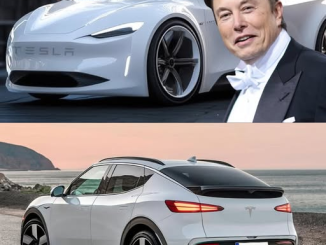
In the vast universe of Elon Musk’s futuristic endeavors—colonizing Mars, building humanoid robots, and advancing AI—there exists a more obscure but equally fascinating obsession: the past. Not just any past, but the digital past. Whispers among tech insiders suggest that Musk is in possession of something extraordinary—a fully encrypted replica of the original Internet as it existed in the 1980s.
This isn’t your average archive or a copy of old websites. It’s said to be a comprehensive, carefully reconstructed digital mirror of the Internet’s earliest days—complete with raw foundational code, early TCP/IP data, and documentation authored by the very architects who built the modern online world. More than a nostalgic keepsake, Musk reportedly views this artifact as a blueprint—a pure, uncorrupted version of what the Internet was meant to be.
Let’s take a deeper look into this rumored digital treasure and why Musk might consider it key to unlocking the future.
A Ghost from the Machine
The 1980s Internet—or what was then called ARPANET—was a far cry from today’s complex, ad-driven, algorithmically dominated landscape. It was a minimal, clean, function-first network built for scientists, universities, and the military. Security was primitive, but the architecture was elegant. It was designed to be robust, decentralized, and fundamentally open.
Sources close to Musk suggest that this mysterious digital time capsule includes early versions of:
- TCP/IP protocols
- The original Domain Name System (DNS) mappings
- Code from early operating systems like UNIX
- Email and Usenet records
- Unpublished notes by key engineers from MIT, Stanford, and DARPA
This isn’t merely a record of history—it’s raw material from the birth of cyberspace.
Why Musk Cares
At first glance, it may seem strange that the world’s most forward-looking entrepreneur is fixated on the distant digital past. But in fact, this fascination fits perfectly within Musk’s broader philosophy: in order to build something truly revolutionary, you must understand its origin with clarity.
Here’s why Musk’s interest in the early Internet makes sense:
- Simplicity = Power
Musk is known to favor first principles thinking—breaking down problems to their simplest truths and reasoning up from there. The original Internet, unencumbered by layers of modern software and bureaucracy, is a playground of first principles. It shows what communication looked like before commercialization. - Freedom and Decentralization
Musk has repeatedly voiced concerns over centralized control of the modern web—be it through Big Tech or government censorship. The 1980s Internet was inherently decentralized. It reflected a grassroots, user-driven culture that he may wish to revive or reimagine in alternative platforms. - Security and Resilience
While primitive by today’s standards, early Internet protocols emphasized redundancy and survivability. As he designs future systems—especially for interplanetary communication—Musk may find inspiration in the robustness of these early frameworks. - The Quest for a New Internet
Some believe Musk is quietly laying the foundation for an alternative digital universe—a parallel Internet born from scratch. This “clean slate” concept would not be constrained by the legacy systems of today’s web. Studying the Internet’s original DNA may be his way of building something both familiar and radically new.
A Digital Rosetta Stone?
The replica is said to be encrypted with advanced quantum-resistant algorithms and stored in multiple secure locations—including underground vaults and cloud servers under SpaceX jurisdiction. Some even speculate that a copy has been uploaded to a Starlink satellite as a digital time capsule for future generations—or civilizations.
It may sound like science fiction, but in Musk’s world, those lines are often blurred.
If true, this artifact represents more than just nostalgia. It’s a digital Rosetta Stone—a map that reveals how we got here, and perhaps where we went wrong. To Musk, it may offer a way to course-correct the Internet, stripping it down to its essence and reimagining it for a smarter, freer, and more human future.
A Future Rooted in the Past
As with so many Musk-related rumors, confirmation is elusive. No photos, no press releases—only whispers and speculation. But if the pattern holds—SpaceX with its Cold War rocket heritage, Tesla’s homage to Nikola Tesla, and Neuralink’s inspirations from brainwave research decades old—it wouldn’t be surprising at all.
Musk has always been a builder of tomorrow, but he often starts by dusting off the blueprints of yesterday. If he truly does possess an encrypted replica of the original Internet, it may serve not just as a monument to digital pioneers—but as a starting point for an entirely new network, one designed for the next century… or the next planet.


